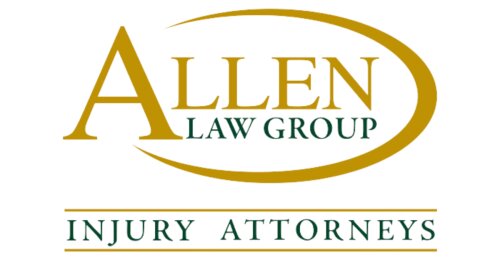Best Wrongful Death Lawyers in Chicago
Share your needs with us, get contacted by law firms.
Free. Takes 2 min.
List of the best lawyers in Chicago, United States
About Wrongful Death Law in Chicago, United States
Wrongful death is a legal term in Chicago, United States that refers to instances when a person is killed due to the negligence or misconduct of another individual or entity. In these cases, the decedent's survivors may be eligible to bring a wrongful death lawsuit. This suit seeks compensation for funeral costs, loss of companionship, future financial support, and emotional pain and suffering. These cases are often complex and vary greatly depending on the individual circumstances of each case.
Why You May Need a Lawyer
Wrongful death cases can be complicated and emotionally challenging. Such cases generally involve an intricate understanding of local laws and legal procedures. A lawyer who specializes in wrongful death can guide you through the process, help you understand your rights, assess the merits of your case, negotiate with insurance companies, and represent you in court if necessary. Scenarios where you might need a lawyer include a fatal car accident, medical malpractice, workplace accident, or death during a supervised activity, among others.
Local Laws Overview
Illinois, the state where Chicago is located, has outlines for wrongful death in the Illinois Wrongful Death Act. Under this law, the statute of limitations - the timeframe within which a lawsuit can be filed- is usually two years from the date of the person's death. If the wrongful act was criminal in nature (like manslaughter), there might not be a set limit. In Illinois, only a personal representative of the decedent's estate can file a wrongful death lawsuit. Keep in mind that damages for grief, sorrow, and mental suffering are recoverable. Also, the law allows for recovery of damages that the decedent could have recovered if he or she had lived.
Frequently Asked Questions
Who can file a wrongful death claim in Chicago?
Only a personal representative of the deceased's estate can file a wrongful death claim in Chicago, Illinois. This can be an executor named in a will or an administrator appointed by the court if there is no will.
What kind of compensation can be recovered in a wrongful death suit?
Compensation may include loss of financial support, loss of companionship, grief, sorrow, and mental suffering, as well as medical and funeral costs.
Is there a time limit to file a wrongful death lawsuit?
Generally, a wrongful death lawsuit must be filed within two years of the date of the person's death. However, there may be exceptions depending on the circumstances of the case.
What is the process for bringing a wrongful death claim?
In general, the process involves appointing a personal representative, investigating the wrongful death, filing a lawsuit, negotiating settlement, and potentially going to trial.
Can a wrongful death claim be filed after a criminal trial?
Yes, a wrongful death claim can be filed irrespective of any criminal proceedings. These are separate proceedings and do not affect each other.
Additional Resources
For more information, consider checking out resources from the Illinois State Bar Association, the Illinois Court system, and the Chicago Bar Association. These can provide further insights into state and city-specific guidelines, locate additional legal authorities, and also help you find a lawyer if needed.
Next Steps
If you think you have a valid wrongful death claim, the next step would typically be to appoint a personal representative if one has not already been designated. Consult with an experienced wrongful death attorney in Chicago as soon as possible. They can guide you through the process, ensure adherence to all legal deadlines, and help you seek the compensation you and your family deserve.
Lawzana helps you find the best lawyers and law firms in Chicago through a curated and pre-screened list of qualified legal professionals. Our platform offers rankings and detailed profiles of attorneys and law firms, allowing you to compare based on practice areas, including Wrongful Death, experience, and client feedback.
Each profile includes a description of the firm's areas of practice, client reviews, team members and partners, year of establishment, spoken languages, office locations, contact information, social media presence, and any published articles or resources. Most firms on our platform speak English and are experienced in both local and international legal matters.
Get a quote from top-rated law firms in Chicago, United States — quickly, securely, and without unnecessary hassle.
Disclaimer:
The information provided on this page is for general informational purposes only and does not constitute legal advice. While we strive to ensure the accuracy and relevance of the content, legal information may change over time, and interpretations of the law can vary. You should always consult with a qualified legal professional for advice specific to your situation.
We disclaim all liability for actions taken or not taken based on the content of this page. If you believe any information is incorrect or outdated, please contact us, and we will review and update it where appropriate.











